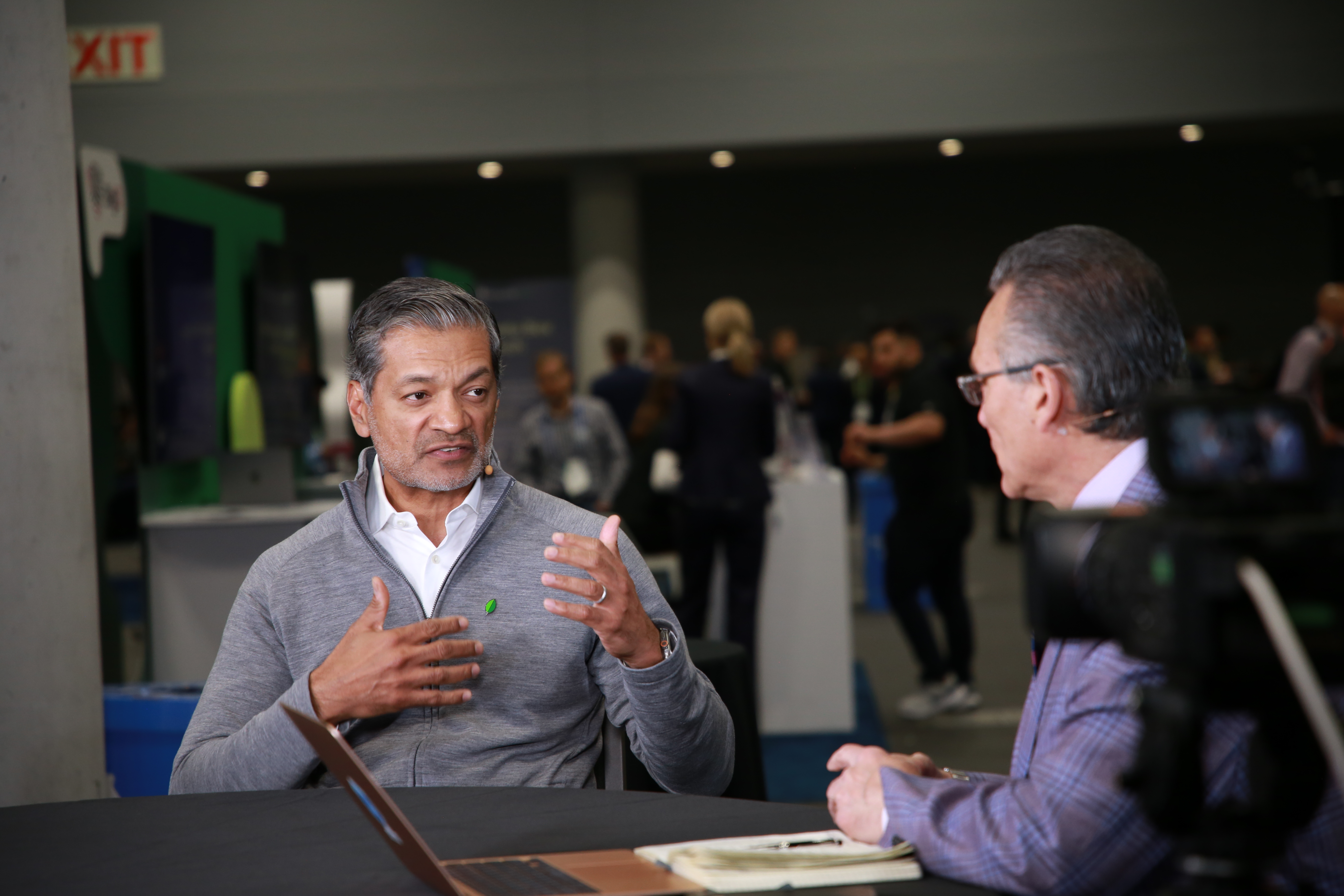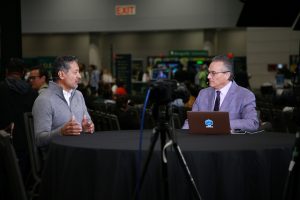 AI
AI
 AI
AI
 AI
AI
The technology industry is undergoing a profound transformation, with artificial intelligence reshaping how businesses operate and interact with customers. The AI landscape is evolving at breakneck speed.
As companies grapple with the rapid evolution of AI, they’re seeking solutions to navigate this new landscape effectively. MongoDB has emerged as a key player in this transformation, focusing on providing tools and expertise to help developers harness AI’s potential in building innovative applications.
“We are in the business of helping developers use AI to build applications that transform a business,” said Dev Ittycheria (pictured), chief executive officer of MongoDB Inc. “Where will people see the value? They’ll see the value through apps that enrich a customer experience, reduce cost, find new opportunities for growth.”

MongoDB CEO Dev Ittycheria talks with theCUBE’s Dave Vellante about MAAP and the evolving AI lanscape.
Ittycheria spoke with theCUBE Research’s chief analyst Dave Vellante at the MongoDB.local NYC event, during an exclusive broadcast on theCUBE, SiliconANGLE Media’s livestreaming studio. They discussed the new MongoDB AI Applications Program and what’s going on in AI right now, how organizations are leveraging AI, and how MongoDB is working with hyperscalers. (* Disclosure below.)
MongoDB’s approach to the AI landscape emphasizes a focus on applications and services that deliver tangible business value. The company is concentrating on the application layer of the AI stack, which Ittycheria believes will be pivotal in transforming businesses. He drew parallels between the current AI revolution and the rise of the internet, likening the infrastructure investments in AI today to the early days of the internet when companies such as Cisco Systems Inc. reigned supreme.
“Right now, there’s tons of investments going into the infrastructure layer … but AI is not really transformative,” Ittycheria said. “The way it becomes transformative is that these next generation of apps that really fundamentally change how we do business, how we drive cost out of the business, how we engage with our customers, how we find new ways to drive growth, that’s going to be the way it really transforms, not just our business, but any business.”
Regarding MongoDB’s strategic direction, the company emphasizes the importance of its recently launched MongoDB AI Application Program, or MAAP. This initiative is designed to help organizations by providing reference architectures, pre-built integrations and technical expertise to accelerate the adoption of AI.
“MAAP is really designed to address three problems. One, give customers reference architectures to address as a certain set of use cases. Two, have a pre-built set of integrations that they can use out of the box so that they can get up and running quickly,” Ittycheria explained. “And, third, bring some tactical expertise so that we can help them go from idea to production as fast as possible.”
MongoDB embraces a strategy of being LLM independent, allowing developers the freedom to choose the large language model that best fits their needs, whether it’s OpenAI, Llama, Anthropic or any other option. This flexibility is at the heart of MAAP. By not binding itself to a single LLM, MongoDB ensures that developers can leverage the most appropriate technology for their projects, ultimately enabling them to innovate and build applications that deliver real business value, according to Ittycheria.
The rapid advancements in AI models is causing uncertainty among businesses large and small. Companies are overwhelmed by the pace of change and fearful of falling behind competitors leveraging AI. MongoDB aims to address this by helping organizations navigate the AI landscape, providing tools and insights to build impactful AI-driven applications, according to Ittycheria.
“People should think about LLMs as the operating system of the future,” he said. “It’s necessary but not sufficient. You don’t need to own the operating system to build the apps.
He dismissed the idea of MongoDB developing its own LLM, pointing out the significant resources required for such an endeavor. Instead, the company focuses on leveraging existing LLMs to deliver specialized applications.
“For a company like MongoDB or other companies of our scale … it still doesn’t make sense for us to build our own model,” he said. “We may use models and fine-tune them on our data for particular internal use cases … but to start from scratch makes no sense whatsoever.”
The real innovation lies in the application of AI to specific business needs, a space where MongoDB can add significant value, he added.
Here’s the complete video interview, part of SiliconANGLE’s and theCUBE Research’s coverage of the MongoDB.local NYC event:
(* Disclosure: TheCUBE is a paid media partner for the MongoDB.local NYC event. Neither MongoDB, the sponsor of theCUBE’s event coverage, nor other sponsors have editorial control over content on theCUBE or SiliconANGLE.)
THANK YOU